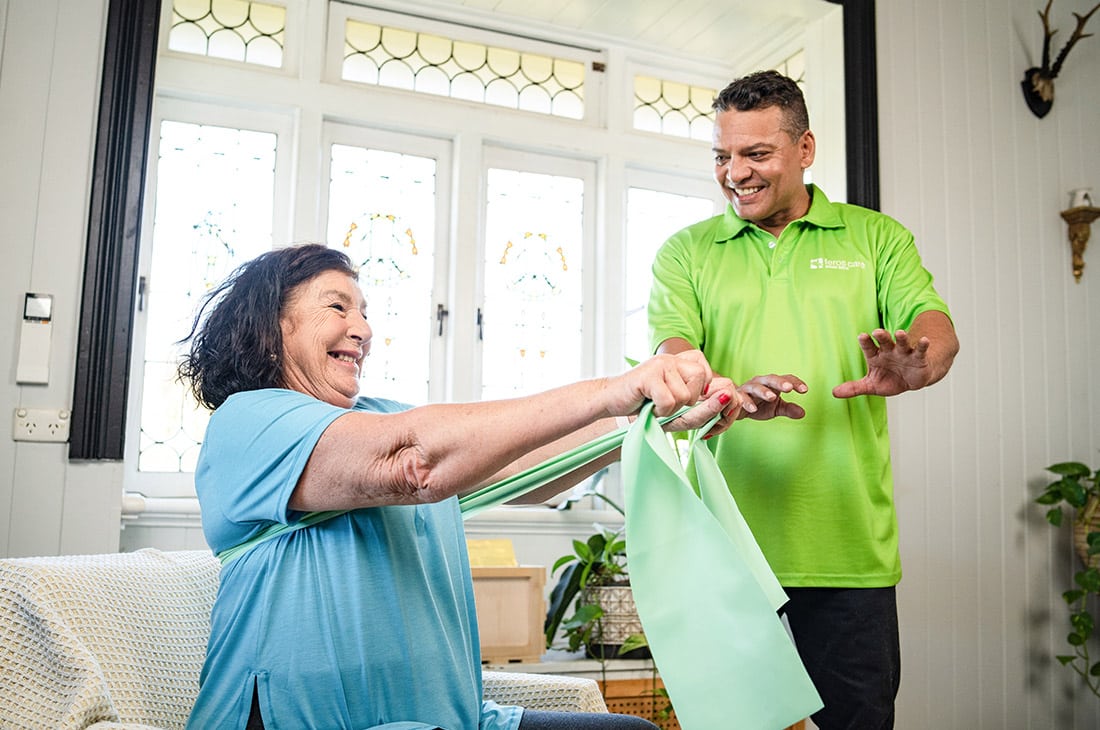Just How In Home Care Givers Address the Special Difficulties and Emotional Demands of Families Seeking Assistance for Their Loved Ones
In-home caregivers play a pivotal function in browsing the intricacies encountered by households seeking support for their liked ones. By understanding special household dynamics and giving customized psychological assistance, these experts not only address prompt care needs but also foster an environment of depend on and open communication. This strategy is vital in managing the psychological stress typically experienced by households, as it acknowledges their concerns and confirms their experiences. Nevertheless, the nuances of this connection prolong beyond plain caregiving; the ramifications for family health and caregiving efficacy warrant further expedition.
Comprehending Family Members Dynamics
Recognizing family members dynamics is crucial for providing efficient in-home care, as each household runs within a distinct collection of communications and relationships. These characteristics encompass various elements, consisting of communication styles, functions, and power frameworks that affect how care is supplied and received. The caregiver has to identify these variables to make certain that care plans straighten with the family members's assumptions and worths.
Different households may display unique patterns of interaction, such as ordered structures or collective methods. As an example, in some households, a primary decision-maker might hold considerable influence, while in others, choices might be much more democratic. Understanding these patterns aids caregivers customize their strategies to fit the family's specific needs.
Furthermore, social backgrounds play an important duty fit family members dynamics. Caretakers should be culturally skilled, recognizing and appreciating varied methods and ideas that might influence care choices.
Ultimately, a thorough understanding of family members dynamics facilitates enhanced interaction, promotes trust, and enhances the caretaker's capacity to support the family members efficiently. By acknowledging the elaborate web of partnerships and responsibilities, caregivers can create an encouraging atmosphere that promotes wellness for both the specific receiving care and the household in its entirety.
Offering Emotional Assistance
Giving psychological assistance is a crucial component of at home treatment that significantly improves the well-being of both the private receiving treatment and their member of the family. In the context of caregiving, emotional support includes energetic listening, compassion, and recognition of sensations. Caretakers are educated to recognize the emotional struggles that households deal with, such as sense of guilt, stress and anxiety, and isolation, and to supply a compassionate existence that alleviates these problems.
By fostering open interaction, caregivers produce a secure space for member of the family to reveal their worries and issues. This dialogue not only urges emotional release however likewise strengthens count on between the caretaker and the family. Additionally, caregivers can use sensible techniques to aid family members handle tension and promote strength.

Ultimately, the psychological support offered by in-home caretakers enhances the top quality of life for both customers and their households, promoting a much more compassionate and understanding caregiving environment. This alternative technique ensures that emotional requirements are resolved together with physical health and wellness considerations.
Handling Daily Treatment Tasks
Managing day-to-day care tasks is a crucial aspect of at home care that makes sure individuals get the assistance they require to keep their health and freedom. Caretakers play an essential duty in aiding with tasks of daily living (ADLs), which consist of bathing, dressing, grooming, and meal preparation. By taking on these duties, caretakers aid ease the physical and emotional concerns that families might deal with while taking care of their liked ones.
Along with individual care, caretakers are additionally tasked with medicine administration, making certain that clients adhere to prescribed timetables and dosages. This oversight is essential for keeping health and wellness and stopping damaging results from missed out on or incorrect medications. Moreover, caretakers typically assist with wheelchair, giving assistance for customers walking around their homes, consequently minimizing the risk of drops and improving total safety.

Fostering Open Interaction
Efficient administration of everyday treatment jobs usually rests on the quality of interaction between caregivers, clients, and their families. Open interaction promotes a setting where concerns, choices, and responses can be easily exchanged, ensuring that care is customized to fulfill individual demands. Caregivers ought to prioritize routine check-ins with over here both customers and their families, helping with conversations that address any type of problems or adjustments in care needs.
Making use of numerous interaction methods-- such as face-to-face meetings, call, and composed updates-- can enhance understanding and give family members with satisfaction. It's vital for caretakers to proactively listen, showing compassion and regard for the psychological landscape of the family. Motivating inquiries from household participants can additionally assist make clear care strategies and strengthen the caregiver's commitment to openness.
Moreover, maintaining open lines of communication allows caregivers to acknowledge and react you can try here without delay to any kind of changes in a customer's wellness condition or psychological wellness. This aggressive technique not just reinforces the caregiver-client dynamic however also empowers households to get involved proactively in the treatment procedure. Ultimately, promoting open interaction is crucial for improving the quality of in-home care and promoting a supportive environment for all included.
Structure Trust Fund and Relationships
Trust fund is the keystone of effective at home treatment, as it develops a foundation for significant connections between caregivers, clients, and their households. Structure this depend on needs constant, transparent communication and a genuine commitment to the wellness of those involved. Caregivers should demonstrate reliability via punctuality, adherence to care plans, and responsiveness to the needs and choices of customers.
To cultivate depend on, caretakers must involve in active listening, making sure that families feel listened to and understood. This involves not only attending to immediate problems however also preparing for future demands, consequently empowering family members and improving their feeling of control. Creating connection through shared experiences and considerate interactions can better solidify these partnerships.
In addition, caregivers must be educated to recognize and resolve the emotional complexities encountered by households. By showing empathy and concern, they can ease anxieties and unpredictabilities, enhancing count on. Normal updates and check-ins with member of the family can additionally enhance openness, allowing them to feel engaged Going Here and informed concerning their liked one's treatment.
Inevitably, building depend on and nurturing relationships in at home treatment is a joint procedure that substantially influences the high quality of treatment provided, promoting an encouraging environment that benefits everybody involved.
Final Thought
At home caregivers play a vital duty in dealing with the special obstacles and psychological demands of families. By comprehending household characteristics, offering psychological assistance, and fostering open interaction, caregivers improve the total caregiving experience. Their ability to manage daily care tasks while developing trust and strong relationships cultivates a supportive environment for clients and their households. Inevitably, the thoughtful involvement of caretakers dramatically contributes to improved wellness and strength for those navigating the complexities of caregiving.
Understanding family dynamics is essential for providing reliable in-home care, as each family runs within an one-of-a-kind collection of interactions and connections.Providing psychological support is a crucial element of at home treatment that dramatically improves the health of both the individual obtaining care and their household members. By taking on these responsibilities, caretakers assist reduce the emotional and physical problems that families might face while caring for their enjoyed ones.
Effective monitoring of everyday treatment tasks typically pivots on the top quality of interaction in between caregivers, customers, and their families - ndis support coordinator.Count on is the foundation of successful in-home treatment, as it establishes a foundation for meaningful connections in between caregivers, customers, and their families